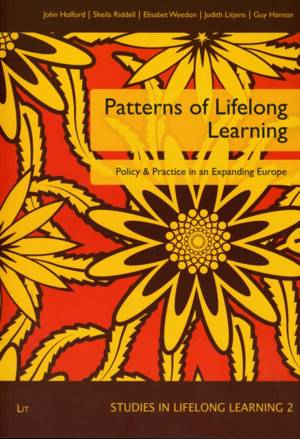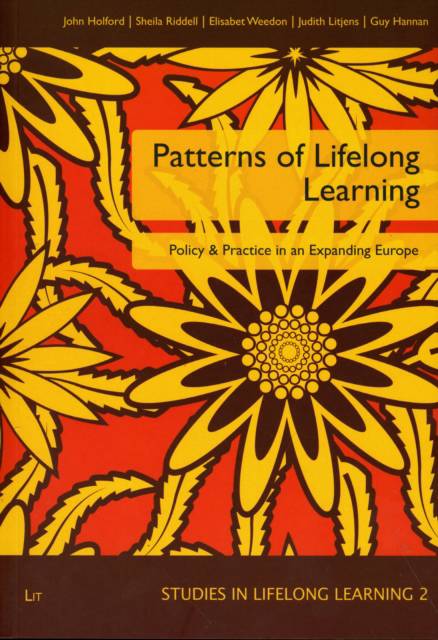
- Afhalen na 1 uur in een winkel met voorraad
- Gratis thuislevering in België vanaf € 30
- Ruim aanbod met 7 miljoen producten
- Afhalen na 1 uur in een winkel met voorraad
- Gratis thuislevering in België vanaf € 30
- Ruim aanbod met 7 miljoen producten
Zoeken
Patterns of Lifelong Learning
Policy & Practice in an Expanding Europe
John Holford, Professor Sheila Riddell, Elisabet Weedon
€ 19,95
+ 39 punten
Omschrijving
For the European Union, lifelong learning has become a means of achieving both competitiveness and social cohesion in an increasingly knowledge-based and globalised economy. Though the concept of lifelong learning is not new, it now coincides with a period of rapid EU expansion. The research project the book is based on examines how lifelong learning is understood and operationalised, especially in countries within the area of the EU's expansion.
Europe, its policy-makers and peoples, need to know whether lifelong learning can contribute to the construction of a European identity - and if so, how. The research points to the importance of diverse national contexts, which suggests a single model of lifelong learning across the EU is unlikely to be achieved. While the EU may encourage a common policy, and this may generate significant national policy developments, these will be strongly influenced by national context: institutional, political, social, ideological. Many countries will continue - consciously or unconsciously - to '`pick and choose" between different EU priorities.
Europe, its policy-makers and peoples, need to know whether lifelong learning can contribute to the construction of a European identity - and if so, how. The research points to the importance of diverse national contexts, which suggests a single model of lifelong learning across the EU is unlikely to be achieved. While the EU may encourage a common policy, and this may generate significant national policy developments, these will be strongly influenced by national context: institutional, political, social, ideological. Many countries will continue - consciously or unconsciously - to '`pick and choose" between different EU priorities.
Specificaties
Betrokkenen
- Auteur(s):
- Uitgeverij:
Inhoud
- Aantal bladzijden:
- 160
- Taal:
- Engels
- Reeks:
- Reeksnummer:
- nr. 2
Eigenschappen
- Productcode (EAN):
- 9783825814489
- Verschijningsdatum:
- 1/07/2009
- Uitvoering:
- Paperback
- Afmetingen:
- 162 mm x 235 mm
- Gewicht:
- 304 g

Alleen bij Standaard Boekhandel
+ 39 punten op je klantenkaart van Standaard Boekhandel
Beoordelingen
We publiceren alleen reviews die voldoen aan de voorwaarden voor reviews. Bekijk onze voorwaarden voor reviews.











